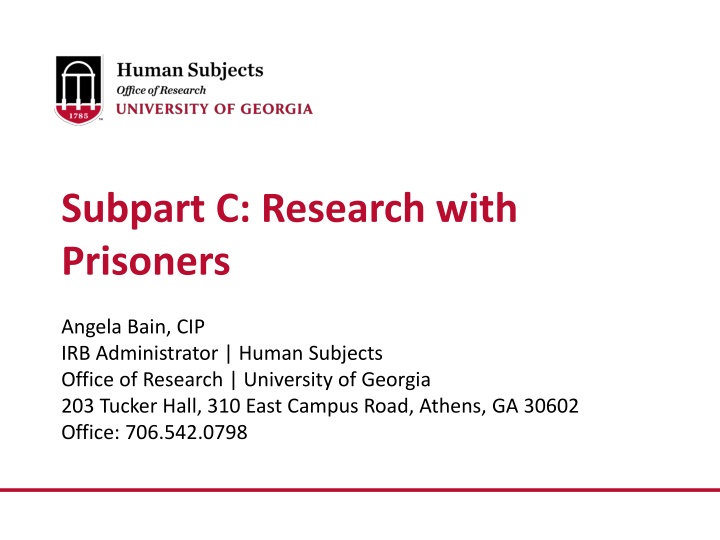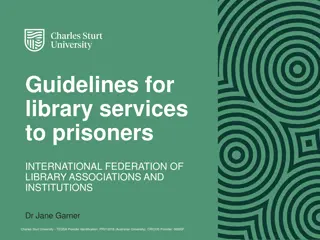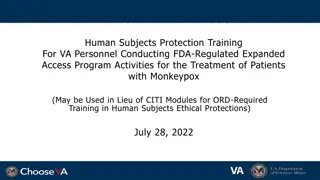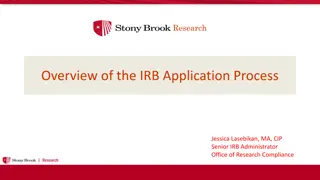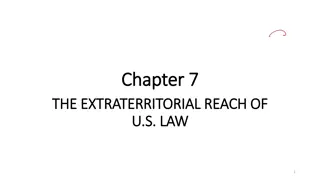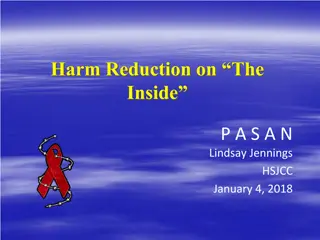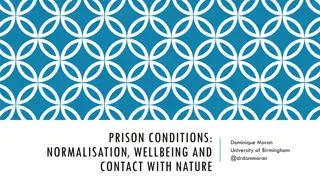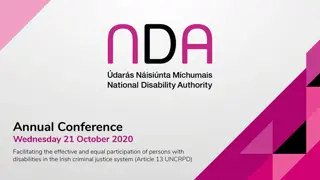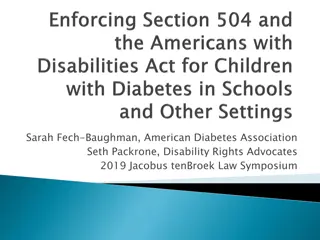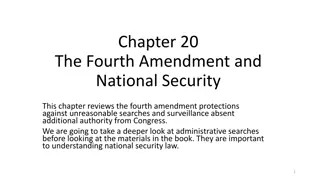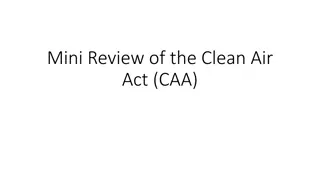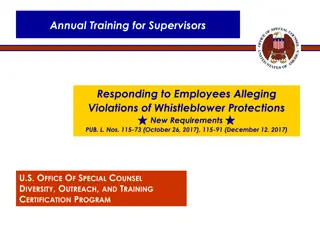Research with Prisoners: Guidelines and Protections
This content discusses the ethical considerations and regulations surrounding research involving prisoners, including the need for special protections, IRB composition requirements, defining prisoners, permissible studies, consent issues, risk assessment, and required IRB findings.
Download Presentation

Please find below an Image/Link to download the presentation.
The content on the website is provided AS IS for your information and personal use only. It may not be sold, licensed, or shared on other websites without obtaining consent from the author.If you encounter any issues during the download, it is possible that the publisher has removed the file from their server.
You are allowed to download the files provided on this website for personal or commercial use, subject to the condition that they are used lawfully. All files are the property of their respective owners.
The content on the website is provided AS IS for your information and personal use only. It may not be sold, licensed, or shared on other websites without obtaining consent from the author.
E N D
Presentation Transcript
Subpart C: Research with Prisoners Angela Bain, CIP IRB Administrator | Human Subjects Office of Research | University of Georgia 203 Tucker Hall, 310 East Campus Road, Athens, GA 30602 Office: 706.542.0798
Why do we have extra protections for prisoners? University of Chicago malaria studies University of Pennsylvania Holmesburg Prison Atomic Energy Commission
IRB Composition A majority of the IRB members must have no association with the prison(s) involved At least one member of the IRB must be a prisoner or a prisoner representative with appropriate background and experience to serve in that capacity
Defining Prisoner Any individual involuntarily confined or detained in a penal institution. This includes: individuals sentenced to such an institution under criminal or civil statute, individuals detained in other facilities by virtue of statutes or commitment procedures which provide alternatives to criminal prosecution or incarceration individuals detained pending arraignment, trial or sentencing
What do the regs allow? 1. Study of the possible causes, effects, and processes of incarceration, and of criminal behavior. 2. Study of prisons as institutional structures or of prisoners as incarcerated persons. 3. Research on conditions particularly affecting prisoners as a class. 4. Research on practices, both innovative and accepted, which have the intent and reasonable probability of improving the health or well-being of the subjects
Consent Issues Free Choice Use of Incentives Confidentiality
Assessing Risk Harm in asking questions Breach of confidentiality
Required IRB Findings Must fall under one of the 4 categories mentioned earlier Any advantages...when compared to the general living conditions, are not of such a magnitude...that they impair the subjects ability to weigh risks/benefits Risks are commensurate with risks that would be accepted by non-prisoner volunteers
Required IRB Findings Continued Subject selection must be fair and immune from arbitrary intervention by prison authorities or prisoners Study info is presented in language understandable to the subject population Participants are clearly informed that research participation will have no effect on eligibility for parole
Other stuff about research with Prisoners Cannot be exempt Can be expedited* May be approved with a waiver or alteration of informed consent* If it is funded by the U.S. Department of Health and Human Services, including (NIH), must be certified by OHRP.
All of these findings must be documented in the meeting minutes.
